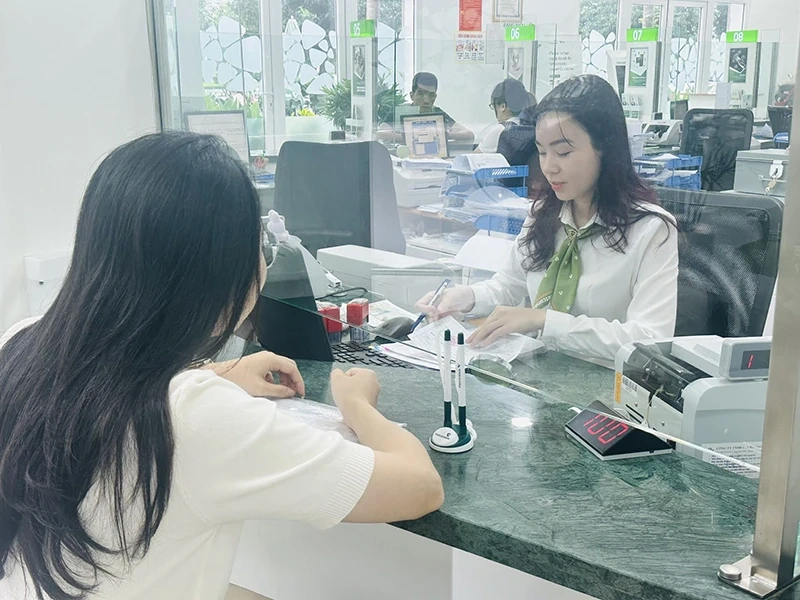
In the context of increasingly tightening tax and e-invoice policies, understanding the legal regulations, rights and responsibilities when using input invoices not only helps businesses operate transparently and legally but also lays the foundation for switching to a tax declaration and deduction mechanism in the new period.
According to the provisions of Decree 123/2020/ND-CP on invoices and documents, invoices are accounting documents created by organizations and individuals selling goods and providing services, recording information on the sale of goods and services, expressed in the form of electronic invoices or invoices printed by tax authorities. Input invoices are invoices that businesses or business households receive when purchasing goods and services from the seller, with value proving valid costs, serving accounting and tax deduction.
In some special cases, it is allowed to make a List of purchased goods and services instead of an invoice, such as purchasing agricultural and aquatic products from direct producers, purchasing scrap, handicraft products, manually mined soil, rock, sand and gravel, or goods from households and individuals with revenue below the tax threshold.
Regarding the subjects of application, Decree 123/2020/ND-CP (amended by Decree 70/2025/ND-CP) stipulates that all organizations and individuals selling or purchasing goods and providing services, including households and business individuals, are required to create, manage and use invoices. When selling goods or providing services, the seller must create an invoice to give to the buyer, including cases of promotional goods, gifts, internal consumption or payment in lieu of salary. The invoice must be created at the correct time of transferring ownership of goods or completing the service, regardless of whether the payment has been collected or not.
For export of goods (including export processing), the time of issuance of e-commerce invoices, electronic value-added invoices or electronic sales invoices shall be determined by the seller, but no later than the next working day from the date the goods are cleared through customs in accordance with customs laws.
Using invoices brings many benefits to business households. Input invoices help prove the validity of expenses, clearly identify the origin of goods, protect rights in transactions and when inspected by authorities. For business households paying taxes by declaration or deduction method, input invoices are also the basis for deducting value added tax.
However, business households must also comply with the obligation to manage invoices. Although contracting households do not have to implement the accounting regime, they must keep records and documents proving the origin of goods, especially when requesting to use individual invoices or when the management agency inspects. For business households declaring taxes, the preparation and storage of invoices and documents is mandatory. From January 1, 2026, business households with a revenue of 3 billion VND/year or more must fully implement the accounting, invoice and document regime according to the law.
Business households with annual revenue of over VND 200 million to VND 3 billion, if choosing to pay tax according to the VAT deduction method when meeting the regulations on accounting books, invoices, documents and voluntarily registering for the deduction method (output VAT minus deductible input VAT), must implement the accounting regime and keep input invoices.
Violations in the use of input invoices such as buying and selling fake invoices, using illegal invoices, invoices that have been discontinued or do not match actual transactions will be handled according to Decree No. 125/2020/ND-CP regulating administrative sanctions for violations in tax and invoices and Decree No. 102/2021/ND-CP amending Decrees on administrative sanctions for violations in the fields of tax, invoices; customs; insurance business, lottery business...
In addition, business households that do not have input invoices to prove the origin of goods may be fined according to Decree 98/2020/ND-CP on administrative sanctions for violations in commercial activities, production, trading of counterfeit and banned goods and protection of consumer rights (amended in Decree 24/2025/ND-CP), with fines ranging from VND 300,000 to VND 50 million depending on the value of the violated goods, and may have the violated goods confiscated or forced to be destroyed.
According to the provisions of Circular 219/2013/TT-BTC guiding the Law on Value Added Tax, amended by Clause 10, Article 1 of Circular 26/2015/TT-BTC guiding on value added tax, tax administration and amending a number of articles on invoices for the sale of goods and provision of services, the conditions for deducting input value added tax include having a legal invoice for purchased goods and services and having a non-cash payment document for goods and services with a value of 20 million VND or more. If there is no legal invoice, the business establishment will not be able to deduct input tax.
Notably, business households paying lump-sum tax are not required to keep accounting books, but still need to store invoices, contracts, and documents proving the legality of goods and services, especially when operating at border markets, border gates, or border economic zones. Meanwhile, business households declaring taxes must fully comply with the accounting, invoice, and document regimes according to current tax laws.
Compliance with invoice regulations is not only an obligation but also a measure to protect the rights of business households, ensure transparency in commercial activities, prevent legal risks and facilitate the transition to a modern tax management model./.
According to VNA
Source: https://baothanhhoa.vn/quyen-loi-va-trach-nhiem-cua-ho-kinh-doanh-khi-su-dung-hoa-don-dau-vao-267602.htm



![[Photo] Ho Chi Minh City Youth Take Action for a Cleaner Environment](https://vphoto.vietnam.vn/thumb/1200x675/vietnam/resource/IMAGE/2025/11/04/1762233574890_550816358-1108586934787014-6430522970717297480-n-1-jpg.webp)

![[Photo] The road connecting Dong Nai with Ho Chi Minh City is still unfinished after 5 years of construction.](https://vphoto.vietnam.vn/thumb/1200x675/vietnam/resource/IMAGE/2025/11/04/1762241675985_ndo_br_dji-20251104104418-0635-d-resize-1295-jpg.webp)
![[Photo] Ca Mau "struggling" to cope with the highest tide of the year, forecast to exceed alert level 3](https://vphoto.vietnam.vn/thumb/1200x675/vietnam/resource/IMAGE/2025/11/04/1762235371445_ndo_br_trieu-cuong-2-6486-jpg.webp)
![[Photo] Panorama of the Patriotic Emulation Congress of Nhan Dan Newspaper for the period 2025-2030](https://vphoto.vietnam.vn/thumb/1200x675/vietnam/resource/IMAGE/2025/11/04/1762252775462_ndo_br_dhthiduayeuncbaond-6125-jpg.webp)
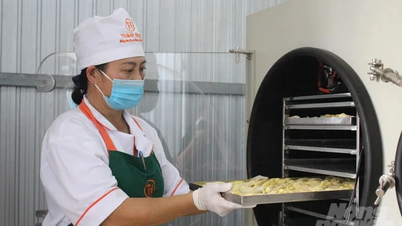


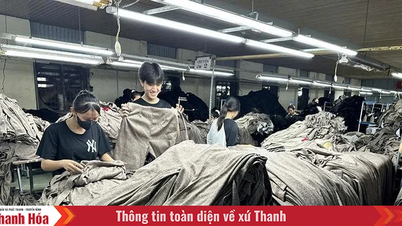









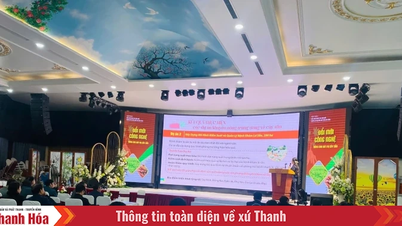
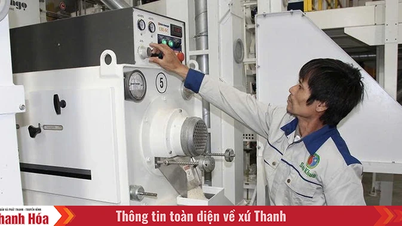










































































Comment (0)